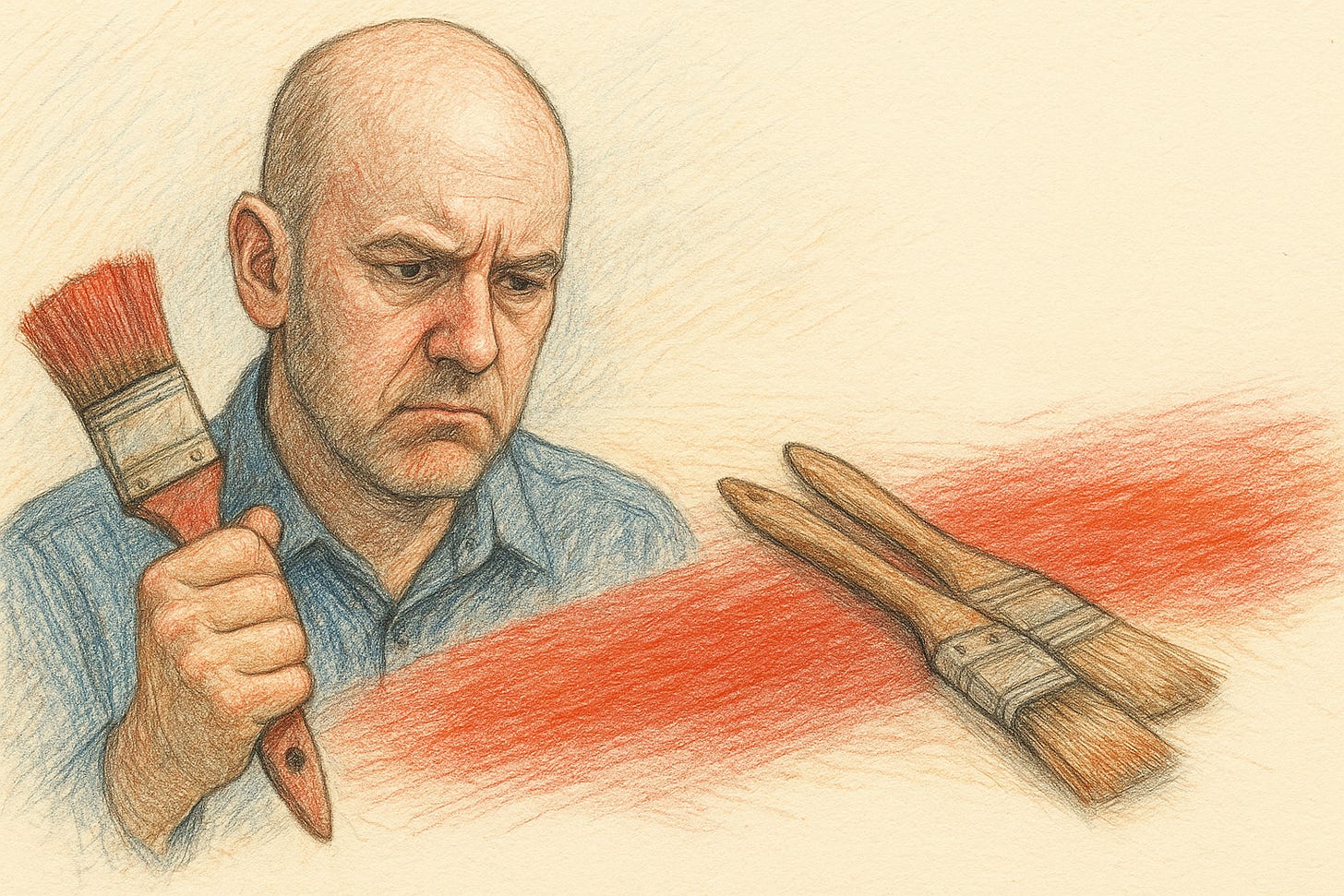Political Violence and The Danger of the Broad Brush
(Reader’s Note: My deepest sympathies for Charlie Kirk and his family.)
The Fight That Went Sideways
A friend once snapped, “You’re just like all the rest of them.” One swipe and suddenly I wasn’t me anymore—I was just “one of them.” That’s the broad brush.
Why We Do It
Arguments often start small, then shift into categories: people like you vs. people like me. We don’t do this because it’s smart. We do it because we’re scared—scared of losing face, scared of looking weak, scared of not being understood.
The Fake Safety Net
The broad brush feels safe. It makes us think we can skip the messy details and just stick someone in a box. But that’s a lie. It erases the quirks and context that remind us we’re talking to a person, not a stereotype.
What It Costs Us
Once we lose the details, we lose the chance for connection. You can’t find common ground in a caricature. You find it in the human stuff—fear, love, grief—the things that make us stop and say, “Oh. I get it now.”
A Different Brush
So maybe it’s time to put the broad brush down. Pick up a smaller one. Notice the lines, the shades, the details that make someone human. That’s where common ground is hiding—not in the strokes we fling, but in what we dare to notice.
Your Turn
If we want connection more than victory, we’ve got to paint with more care.
When was the last time you caught yourself using the broad brush—and what detail did you almost miss?
Thanks for being you,
Brian



